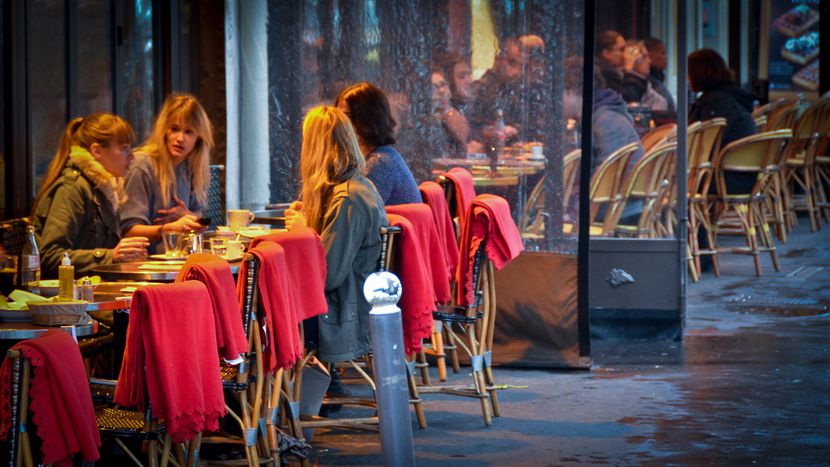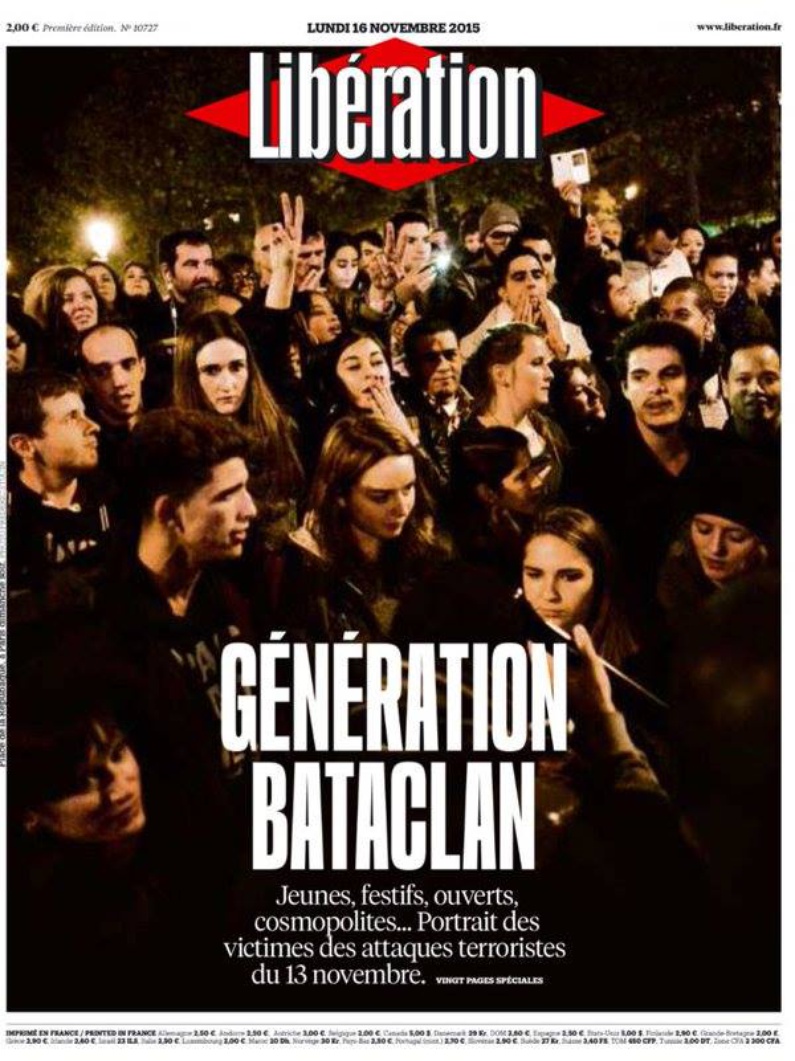
We are "Generation Bataclan"
Published on
Translation by:
Melisa Laura DíazWhat is the most troubling thing about all of this is that the people who caused the gunfire and explosions were themselves so young. We will answer by opening our arms. By once again filling our favourite bars, by turning up the music, by filling our glasses, by laughing and chatting in the streets.
The front page of Libération, which hit newsagents on Monday following terrorist attacks in Paris, created a sudden sense of awareness in people's minds. The title, “Genération Bataclan,” was followed by a brief summary: “Young, ready to party, open, cosmopolitan... A portrait of the victims of the terrorist attacks of the 13th of November.” Its accompanying picture captured the essence of these beautiful young people. On seeing those images we saw ourselves in those youngsters. We were the targets that the terrorists wanted to hit.
They criticised our lifestyle, our freedom, our light-heartedness. They invaded our spaces and disrupted our lives. These were their intentions, and they succeeded. It was a savage attack. The boys and girls at Bataclan, at Le Carillon bar and at the P'tit Cambodge could not put up a fight against kalashnikovs, they could only shriek with fear and huddle together trying to protect each other.
We answer hatred by opening our arms.
One tries to stay calm and think clearly — despite the fear which, whatever people say, will remain for a long time — but what is the most troubling thing about all of this is that the people who caused the gunfire and explosions were themselves so young. Reflecting on this, it seems clear that the plan of the people pulling the strings behind the scenes was to set us against each other, to stir up hatred among people of the same generation. To raise a barrier between “us” and “them”.
They failed. Because we, young people, will answer by opening our arms, by once again filling our favourite bars, by turning up the music, by filling our glasses, by laughing and chatting in the streets. Maybe even through forgiveness. Because our generation, Generation Bataclan, doesn't know what to do with hatred.
Parents and children
We cannot do this ourselves. Our parents will have to help us: and by “parents” I mean those of the generation before us, who today has the power to make the decisions. Because if they were asked to answer all the questions put to our generation, they would probably realise — remembering the revolts in the Parisian suburbs in 2005 — that they didn't listen to those marginalised young people, who last week were the targets of terrorist attacks. Boys and girls who, today, as in the past, struggle to find their own space, to access basic services, to have the same possibilities as the rest of us have.
This is why our parents should feel an obligation to protect us. Not with guns, and not by declaring war on their enemies. Attacking people won't protect us. They have to understand our generation, as parents do with their own children. But first they will have to help those young people in the provinces and suburbs, who feel caged and don't get the answers they deserve from an unresponsive state, who decided to put themselves in the hands of the instigators of such diabolic hatred.
In order to begin remedying the situation, our parents should also treat those young people like they do their own children, and ask themselves what went wrong. It is not through guns and hatred that they will do this, but through looking for pacifist solutions. It is difficult, and enormously complex; but they must succeed. The future of their children is at stake. Génération Bataclan wants to hear nothing of “war.”
Translated from Noi, Generazione Bataclan



